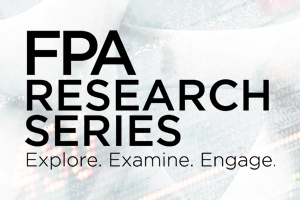Past Event! Note: this event has already taken place.
| When: | Thursday, October 8th, 2020 |
| Time: | 2:00 pm — 4:30 pm |
| Location: | Via online conference calling. |
| Audience: | Carleton Community, Current Students, Media, Staff and Faculty |
| Contact: | Stephanie Bos , stephaniebos@cunet.carleton.ca |
This event will be run as an invitation-only live webinar, where panelists will each speak for 15-20 minutes, followed by a 45-minute live Q&A session.
Context
In June 2017, Canada introduced its Feminist International Assistance Policy and began to refer, in official documents and speeches, to its foreign policy more broadly as ‘feminist’. Despite these numerous references, a full feminist foreign policy was never set out by the government. After the election of 2019, and the shuffle of FFP-champion Chrystia Freeland out of foreign affairs, many wondered if feminist foreign policy had staying power. However, in a speech in February 2020 at the Montreal Council on Foreign Relations, new minister François-Philippe Champagne promised a white paper on Canada’s feminist foreign policy, stating that Canada is ‘proud to have a feminist foreign policy, not because it looks good, but because it produces tangible and measurable results.’ Less than a month later, Canada was locked down due to the Covid-19 pandemic, and the federal government was suddenly fully focused on responding to this unprecedented crisis. By August, parliament was prorogued, with the government promising a new mandate to be presented in September. There has been no public statement about the promised white paper since February.
With this context in mind, these two joint panels will consider the future of feminist foreign policy in Canada. These panels will address policy concerns and prescriptions as well as theoretical, ethical and political considerations. What should a Canadian FFP look like, going forward? What kind of ‘tangible and measurable results’ can or should be expected? What understandings of gender and race inform feminist foreign policy, and what are the implications of these? Can FFP be truly intersectional? How, if at all, should our understanding of FFP be influenced by the socio-political and economic effects of the global pandemic?
Participants/Presenters
Stephen Brown (University of Ottawa): Sexual Orientation and Gender Identity in Canada’s ‘Feminist’ International Assistance
Stephen Brown is professor of Political Science at the University of Ottawa. He has published extensively on foreign aid, especially Canada’s, and has a strong interest in international LGBT+ rights.
Marsha Henry (London School of Economics and Political Science): On the Necessity of Critical ‘Race’ and Feminist Theory for Peacekeeping Contexts
Marsha Henry is an Associate Professor in the Department of Gender Studies at the London School of Economics and Political Science. Marsha’s research interests focus on critical military and peacekeeping studies; the political economy of sexual violence in postconflict settings; and intersectional feminist theories and methodologies.
Margaret Jenkins (Central European University): What Should Canada’s Feminist Foreign Policy Aim to Do
Margaret Jenkins has worked as a scholar and practitioner on issues related to gender and public policy around the world. She is currently a consultant with UNDP Vietnam and the Vietnam People’s Army developing a program on gender and peacekeeping in the ASEAN Region, and in recent years has worked on projects funded by UN Women, the US Institute of Peace, and Global Affairs Canada. She has been a Research Fellow at Georgetown University’s Institute for Women, Peace and Security, and Harvard Kennedy School, and was a Visiting Professor at Central European University (Budapest) from 2014-2018. She received her PhD from the University of Toronto in 2010.
Laura Macdonald (Carleton University): Trading on Inequality? Evaluating Canada’s Approach to a Feminist Trade Policy
Laura Macdonald is a Professor in the Department of Political Science and the Institute of Political Economy at Carleton University. She has published numerous articles and edited collections on such issues as the role of non-governmental organizations in development, global civil society, citizenship struggles in Latin America, Mexican political economy, Canadian development assistance and the political impact of the North American Free Trade Agreement (NAFTA) on human rights and democracy in the three member states.
Fiona Robinson (Carleton University): The Vulnerable, Virtuous Woman: Reflections on Neoliberalism and Colonialism in Canada’s FIAP
Fiona Robinson is Professor in the Department of Political Science at Carleton University. Her research is on critical and normative theory in International Relations, feminist ethics, and, most recently, narratives of feminist foreign policy.
Rebecca Tiessen (University of Ottawa): Whose Feminism (s)? Overseas Partner Organization’s Perceptions of Canada’s Feminist International Assistance Policy (FIAP)
Rebecca Tiessen is Full Professor in the School of International Development and Global Studies and University Chair in Teaching at the University of Ottawa. Her research focuses on feminist foreign aid policy and gender equality.
Beth Woroniuk (Policy Lead, Equality Fund): Canada’s Feminist Foreign Policy: A View from Civil Society
Beth Woroniuk is the Policy Lead at the Equality Fund where her work includes advocating for more and better financing for women’s rights organizations and movements, and for strong feminist foreign policies and agendas. Beth also chairs the Women, Peace and Security Network-Canada.
Event Program
Canada’s Feminsit Foreign Policy – Event Program
Please note that sessions may be recorded.
Registration is now closed.
